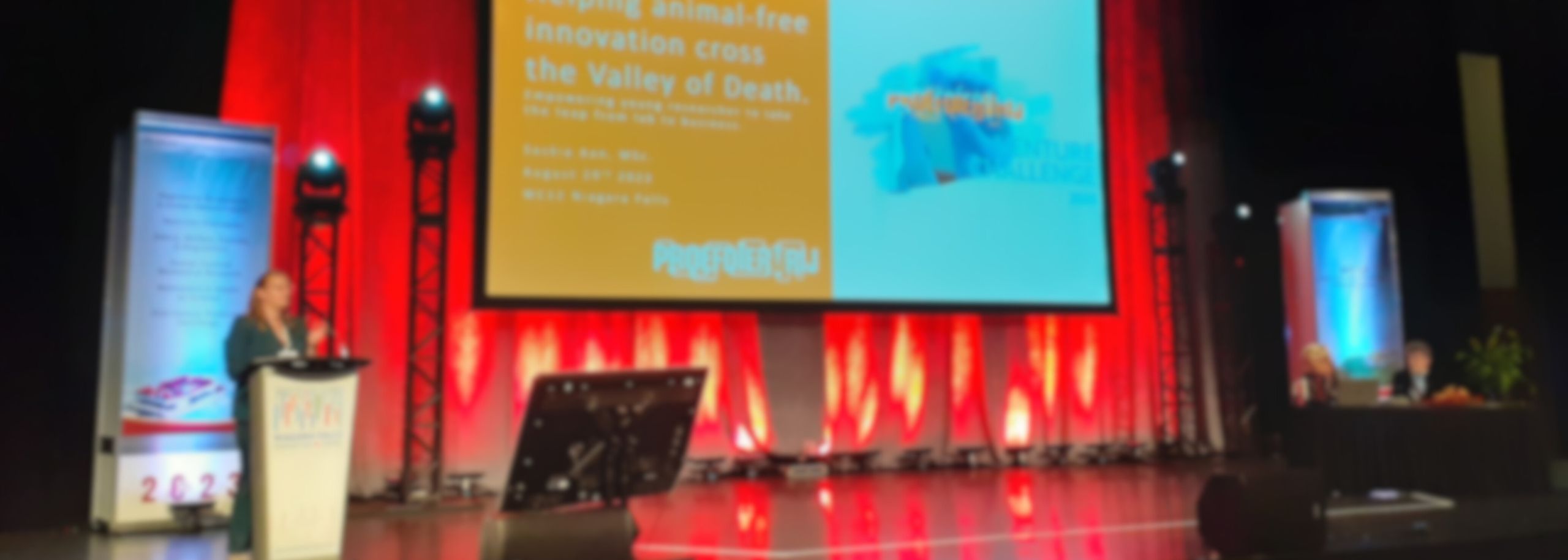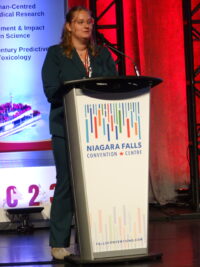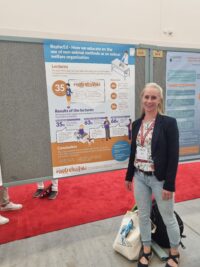Last August, the 12th World Congress on Alternatives and Animal Use in the Life Sciences took place in Canada. Our experts, Debby and Saskia, were present to give a presentation on the impact of our courses in Laboratory Animal Science and, of course, on the Proefdiervrij Venture Challenge. Three weeks later, Debby reflects about a valuable and hopeful experience in this blog.

“I notice that I’m becoming more and more determined. The World Congress on Alternatives and Animal Use in the Life Sciences greatly reinforced that, because you can just feel that there’s so much momentum to move towards a world without animal testing. And I’m not the only one experiencing this. The next world congress will take place in 2 years, instead of the usual 3. Because science is advancing rapidly, and thus we need to catch up faster. Fantastic, isn’t it?”
Saddening news…
“However, there are still significant steps to be taken worldwide. During the congress we were told that evidence has been gathered regarding the capture of wild macaques, which are then sold as ‘bred’ laboratory monkeys. This blatant animal cruelty leads to even more unreliable results of animal experiments due to the immense amount of stress the macaques experience in a completely unfamiliar environment. That this is happening in 2023 makes me so sad. Why do we still subject animals to this?”
But also happy news!
“Fortunately, the congress mainly focused on wonderful developments. And the fact that these developments are progressing rapidly, gives them the potential to make animal testing unnecessary. During the congress, I was constantly pleasantly surprised. For example: a research group in the United States has succeeded in controlling a robot with a human brain organoid. This organoid emits signals so lifelike, that the robot translates them into movement. Just like what happens in our bodies. For me, this emphasized once again: we are really further along than you think!”
Time to phase in and out
“One recurring theme at the World Congress was that a world without animal testing will not be achieved unless we phase out animal experiments. Especially concerning legislation and regulations, it is crucial to not only make room for animal-free models, but also to actually prohibit animal testing when an alternative is available.
That sounds logical, but in practice, the familiar, i.e., animal testing, is still being held onto. Despite the existence of other methods, for example, to test safety. The RAT list from Cruelty Free Europe hit the nail on the head: almost a million animals are still being used in research where a validated alternative is available. In my opinion, it is truly time to phase out animal experiments in this scenario.”
There is a light at the end of the tunnel
“One thing is certain. There is still a lot of work to be done, but I see a light at the end of the tunnel. And that’s what makes me so determined. Fortunately, we live in a country that aspires to be a leader in the transition to animal-free innovations. In comparison to many other countries, the subject is actually on the agenda in the Netherlands.
And the fact that, as a small country, we are one of the 5 countries with the most participants in the world congress confirms my feeling that we are on the right path. Let’s show courage, lead the way, and move forward now!”

Our poster at WC12
With our poster, we demonstrated the importance of our course on animal-free innovation in education at the world congress. Learn early, practice throughout life.



